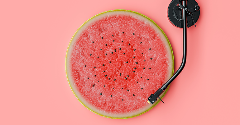News
Unilever to divest most of its tea business but keep RTD Lipton
7 Aug 2020After a nearly seven-month review of its tea business, Unilever announced that it would divest the majority of its €3 billion ($3.5 billion) tea business, which includes tea brands PG Tips, Pukka Herbs and Tazo that generated €2 billion ($2.3 billion) in revenue last year. The Dutch-Anglo company will retain its Indian and Indonesian units as well as its joint venture with PepsiCo.
Unilever forged its partnership with PepsiCo in 1991 to allow the soda manufacturer to distribute Lipton, Brisk and Pure Leaf ready-to-drink iced tea beverages. Each company owns a 50% stake in the ready-to-drink tea business, which David Pitkethly, Unilever’s chief financial officer said in a July 23 call with analysts, is a lucrative market worldwide. “The ready-to-drink tea market is two-thirds of the global tea market,” he said. This partnership with PepsiCo, he continued, has been “extremely successful.”

Traditional black tea, on the other hand, has not had such a successful past few years. Consumer preferences are changing in the U.S. and in Europe, and cups of Jo are replacing English Breakfast blends as people look for a caffeine kick. Even in the UK, where tea has remained popular for centuries, the trade publication, The Grocer, reported that Britons consumed 900 million fewer cups of tea over the 12 months ending May 2018. Furthermore, Unilever noted at the beginning of 2020 that although traditional tea remains popular in developing countries, growth is beginning to stagnate. Herbal tea, however, remains in demand with consumers in developed countries.
Still, tea remains a growth category worldwide with World Tea News reporting that sales are expected to hit $73 billion by 2024.
Pitkethly said that the divestiture, which is anticipated to be complete by the end of 2021, will be challenging. "It does present a change going forward potentially with regard to the Lipton brand because if there is a different owner or a more separate operation of the Lipton brand in hot tea or leaf tea rather, then there'll be some need for some form of special arrangement," he said in the company’s earnings call.
To alleviate the complexities of splitting its tea business, analysts speaking to Reuters suggested that Unilever could sell the entire tea business and then license back the Indian and Indonesian business units.
Nevertheless, Unilever CEO Alan W. Jope said, “The balance of Unilever’s tea brands and geographies and all of our tea estates have a very exciting future, but this potential can be best achieved, we believe, as a separate entity.”
Related news

Retail landscape lacks nutritious and affordable food, says ATNi
30 Dec 2025
A rapid increase in modern food retail has given retailers growing influence over consumer diets, according to global non-profit ATNi’s latest assessment.
Read more
Debate over ban on ‘meaty’ names for plant-based products reaches stalemate
26 Dec 2025
The debate over a ban on plant-based products using “meaty” terms has reached a stalemate, leaving manufacturers in limbo and still facing overhauls to their marketing and packaging.
Read more
Multi-sensory food and drink products to gain traction in 2026
16 Dec 2025
Trend forecasters predict that sensory elements will play a larger role, helping food and beverage brands differentiate themselves in a competitive market in 2026.
Read more
Big appetite for M&A between European and US food and drink companies
3 Dec 2025
Persistent tariffs on EU food and beverage exports have helped drive record levels of M&A activity between European and US companies this year, according to analysis by ING.
Read more
Non-UPF Program extends certification scheme to entire food industry
30 Nov 2025
The Non-UPF Program has extended its certification scheme to the wider food sector, championing a move towards healthier consumption habits.
Read more
Lancet study links UPFs to chronic disease risk
26 Nov 2025
UPFs are consistently associated with an increased risk of diet-related chronic diseases, according to a comprehensive review of global evidence in The Lancet .
Read more
Concerns swirl around cinnamon’s compliance with EU law
25 Nov 2025
Cinnamon may be a top functional ingredient, but it needs stronger protocols to ensure it meets EU food safety laws and quality standards, say researchers.
Read more
Oat Barista: Innovation for game-changing beverages
20 Nov 2025
Oat Barista is a clean label, sustainable, and innovative drink base specifically designed to create the perfect foam in one single ingredient.
Read more
How younger consumers are redefining ingredient choices and rejecting brand loyalty
18 Nov 2025
Gen Z and millennial consumers’ preferences for transparency, functionality, and purpose are “redefining the very nature of consumption itself”, says SPINS.
Read more
Hybrid formats and flexible positioning to disrupt category norms in 2026
17 Nov 2025
Trend forecasters expect food and drink to move more fluidly across occasions, functions, and formats as consumers seek versatility, novelty, and convenience.
Read more